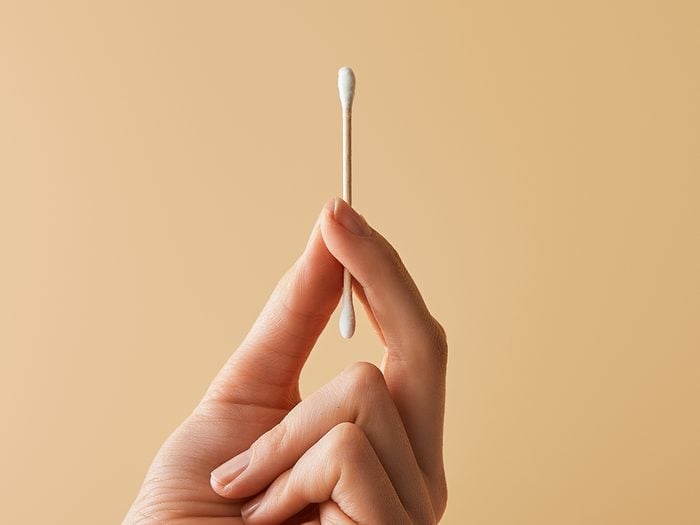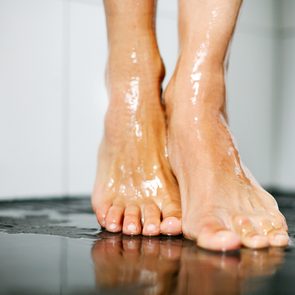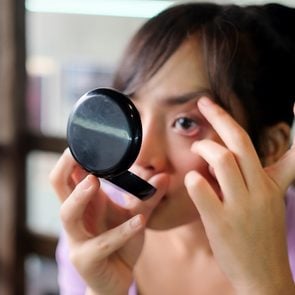You Really Need to Stop Cleaning Your Ears With Cotton Swabs

Earwax is part of your body's defense system. Here's how to manage it without damaging your hearing.
While it may not be one of your body’s most attractive features, earwax (medical term: cerumen) is part of its natural defenses. Secreted by glands in your ear canals, it cleans and protects by trapping invading dirt and dust and preventing the growth of bacteria.
Thanks in part to the motions of chewing and talking, older cerumen makes its way out of the ear, where it falls out or washes away, bringing germs and other foreign particles with it and making room for the fresh wax that’s been created.
Normally, proper wax management boils down to letting this process happen naturally. If wax is visible on your outer ear, you can gently clean it with a cloth.
However, you shouldn’t try to remove it from the inside. Don’t be tempted by cotton swabs, since “putting anything in the ear risks, at best, pushing the wax back in or, at worst, damaging delicate skin,” says Dr. Shakeel Saeed, a professor of otology and neuro-otology at the University College London Ear Institute in the U.K. You could even perforate your eardrum or dislocate the bones of the inner ear.
Your ear canal may become obstructed by wax if the glands in your ears produce an excessive amount (some just do), if your body can’t manage to clear it out effectively or if you accidentally jam it in further during a misguided cleaning attempt. Symptoms of blockage can include earache, tinnitus, decreased hearing, dizziness or even coughing, since the buildup can push against nerves and trigger the cough reflex.
A doctor, who will have professional tools and methods, can achieve earwax removal far more safely than you could. Another reason why it’s best to visit a GP: it may not be cerumen that’s causing your symptoms but rather an infection, age-related hearing loss, an injury from pressure changes or one of many other problems. (Learn to spot the signs of hearing loss.)
If earwax blockage is a frequent occurrence, your doctor may recommend cleanings and the use of earwax-softening drops. Commercial formulas are available, but mineral oil or olive oil can also do the job. If a hearing aid is contributing to your recurring problem, says Saeed, you can try “removing it several times per day for an hour or so, to see if that helps.”
Next, find out what your earwax says about your health.






